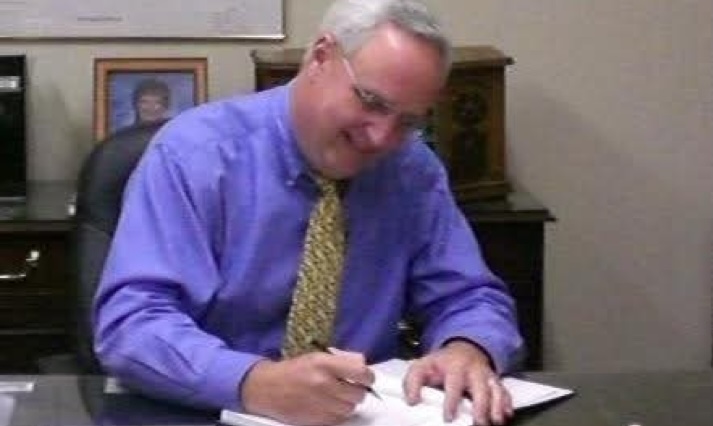Having heard the nearby towns of Senoia and Woolsey widely mispronounced most of his life, your compiler believes a public-service column on place name pronunciations may be in order. The first—and frankly only—maxim of place name pronunciation is this: one should generally try to pronounce the place as long-time residents and natives do. That is the polite thing to do, and it has the additional benefit of demonstrating that one is in tune with his or her surroundings and pays attention to important details.
Let us consider Senoia, that neighboring Coweta berg where televised perambulation of the deceased held sway for a decade or more. Cutting to the chase, natives pronounce it sen-OY or perhaps suh-NOY, either of which rhymes almost exactly with “annoy,” which is precisely the human emotion experienced in natives who hear it enunciated any other way. Pronouncing it to rhyme with either “sequoia” or “the Noah” truly grates on the local ear.
Then there is Woolsey, that lovely berg in southeast Fayette County between Inman and Griggsville on Highway 92 South. Most people pronounce it as if it contains the letter Z, which is understandable yet incorrect. A few, who apparently face serious challenges in both listening and reading skills, pronounce it WOOZ-ley, which is nothing short of an abomination before the Lord. The family who bear the surname pronounce it WOOL-sie, plainly and simply—no Z anywhere around. Just ask any of the several Woolseys still in the metro area.
Heading south a bit, we might soon encounter Chalybeate Springs in Meriwether County, where mispronunciations must truly abound. (That could be their town motto—“Chalybeate Springs: Where Mispronunciations Abound!”) Its pronunciation locally is Cuh-LEE-bee-ut Springs. Not far from there is Talbot County, which seems to be pronounced TOLL-bert by most locals, who apparently favor the Intrusive R discussed some weeks ago. Further down the road in Georgia are the hamlets of Eldorado, Omega, and Milan, and the counties of Schley and Taliaferro. Locally, these are pronounced:
- el-duh-RAY-duh (Eldorado)
- o-MEE-ga (Omega)
- MILE-un (Milan)
- Sly (Schley)
- TOL-iv-uh (Taliaferro)
Some prominent street names that might cause problems for folks not from here include Ponce de Leon in Atlanta, Pio Nono in Macon, and Bernhard Road in south Fayette. If one does not say ponts-duh-LEE-on and PYE-uh no-nah, one might be looked at strangely in the big cities. In Fayette, the Bernhard family name is pronounced BURN-urd or BUHN-ud, depending on the speaker. It ain’t Burn-hard.
Heading out the McIntosh Road from Brooks toward Griffin, one goes through the village of Rio. It is not R-10, as some folks seem to think. Nor is it REE-oh, as most of us would figure. Instead, it is RYE-oh.
Metropolitan Atlanta teems with difficulties.
For starters, the second T in Atlanta is not pronounced by natives—it is At-lanna. While our own county’s namesake was the Marquis de LaFayette, generally pronounced la-fee-ET by most Americans, the county name is pronounced Fet, although with our way of drawing things out, we come close to making two syllables out of it. (The city of LaFayette, in northeast Georgia, is la-FET.)
Then there is DeKalb County just up the road—the L is silent there, and it is du-CAB to folks from the area. McDonough should be simple to pronounce—it is Mac-DON-uh. But most folks want to make the second syllable rhyme with Dun, as in Dun and Bradstreet. (Your compiler always wants to ask such mispronouncers whether they eat at “McDunnald’s.”)
Cities in other Southern states that cause verbal problems
- Norfolk, Virginia → NAW-fik
- New Orleans, Louisiana → new AW-lens (though its parish is pronounced or-LEENZ)
- Versailles, Kentucky → ver-SALES
- Louisville, Kentucky → LOO-uh-vul
Going further afield
Your compiler understands that most natives of two Western states, Nevada and Colorado, pronounce the respective syllables that end in “AD” in their state names to rhyme with add. Most Southerners learned to rhyme that syllable with odd in each state name, and the more correct pronunciation sounds a bit strident to our ears.
In conclusion
We have established that the polite thing to do is to try to pronounce place names as locals do, to the best of our ability. But that being said, the reader can bet his bippy that he will never hear the “add” pronunciations of either Nevada or Colorado flow from your compiler’s mouth.













Leave a Comment
You must be logged in to post a comment.